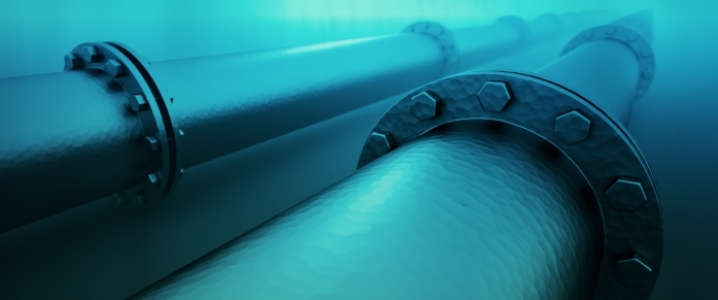August 2017, Vol. 244, No. 8
Features
Russia’s Pipeline Play Keeps Eastern Europe On Edge

Russia has been a major energy supplier to the European market for decades, and is looking to expand its dominance with a new pipeline that could feed natural gas directly to the continent’s biggest economy.
A deal on Nord Stream 2, a gas pipeline that will link the Ust-Luga area west of St. Petersburg directly with Germany, was signed by Russian energy giant Gazprom in late April. If completed, the pipeline would give Russia more than fifty percent of the Germany gas market and potentially increase its share of markets throughout Central and Western Europe. The pipeline is set to be completed in 2019 and is supported by joint-funding from five European energy companies, including Royal Dutch/Shell, Uniper and ENGIE.
The line will run under the Baltic Sea, and if completed will eventually concentrate seventy-percent of Russian gas exports to Europe into a single route. This will render existing pipelines, several of which run through Ukraine, obsolete.
Yet the pipeline faces a number of challenges, including political opposition from European leaders wary of letting Russia take a bigger share of their energy demand, and up-start competition from American LNG suppliers looking to increase their profile in the area.
Existing pipelines from Russia, the second-largest producer of natural gas on earth, already run throughout Europe. Russian natural gas supplies two-thirds of Polish demand and forty-three percent of Germany’s market. Plans for the new pipeline come at a propitious time, as industry experts predict European natural gas stocks will decline by fifty percent over the next twenty years, making greater imports a necessity.
Russia is well-positioned to supply more cheap natural gas to Europe, and Nord Stream 2 is an attractive option to European leaders looking to keep their economies growing. German leader Angela Merkel has expressed tacit support for the pipeline, which will be crucial to Germany’s economic future.
Yet other European leaders have decried the scheme as a naked ploy by Russia to exert more influence over the continent. One analyst has argued it poses a serious threat to the Atlantic Alliance between the U.S. and Europe, and notes that the line will not add new natural gas to Europe’s supply but rather divert it from lines in Ukraine, where Russia continues to support separatism and where its occupation of Crimea has opened it to widespread condemnation.
Opposition has been fiercest in the Baltic States, Poland and the Nordic states of Norway and Denmark, all of whom are increasingly worried about Russian expansionism.
On Tuesday the European Commission was given clearance by the EU to begin negotiations on the pipeline. Approval for the pipeline will have to come from a majority of EU members, but that shouldn’t stop Germany, Austria and other pro-pipeline members from pressing ahead with the project. Germany has demanded that opponents to the project cease their meddling in Germany’s energy future.
The United States has continued to condemn Russia for its disruptions of Western politics, with the U.S. Senate voting on new sanctions in mid-June. The sanctions were aimed squarely at Nord Stream 2, and brought an acrimonious response from German and Austrian representatives. They have argued that the US resistance to the line is a threat to European energy security and a violation of international law.
The US position vis-à-vis Russia continues to grow more complicated due to the on-going investigation into Russian tampering in the 2016 Presidential Election and the possible ties and collusion between the Trump Administration and Vladimir Putin’s government.
But energy politics are playing a role in this drama as well. Should Russian natural gas to Europe be impeded, it would open up a bigger opportunity for US natural gas exports, which have been growing as the U.S. gradually becomes a net natural gas exporter.
Cheniere, the major U.S. exporter of liquefied natural gas (LNG) has announced plansto increase its export capacity in 2018. Eastern European states threatened by Russia are eager to embrace a new, safer source of energy, and Lithuania announced a dealwith Cheniere on Monday. The small Baltic States plans an LNG import terminal at Klaipeda and has been ardent in its opposition to Gazprom’s expansion. The first American cargoes should reach Lithuania by early August.
The Trump Administration, which has widely encouraged the expansion of U.S. energy exports as a sign of American energy dominance, looks set to back Cheniere’s expansion into Eastern Europe. President Trump plans to reduce regulations on U.S. energy exports, and plans on visiting Warsaw next week to promote greater energy ties.
Positioning the U.S. against Russia at a time when his administration is coming under close scrutiny for its apparent ties to Moscow makes political sense, yet it may complicate the American position in Europe and place it in the middle of the fight between proponents of the new Russian pipeline and those who oppose an expansion of Russian energy exports.
Either way, the competition over future European energy demand looks set to heat up in the months ahead.





Comments